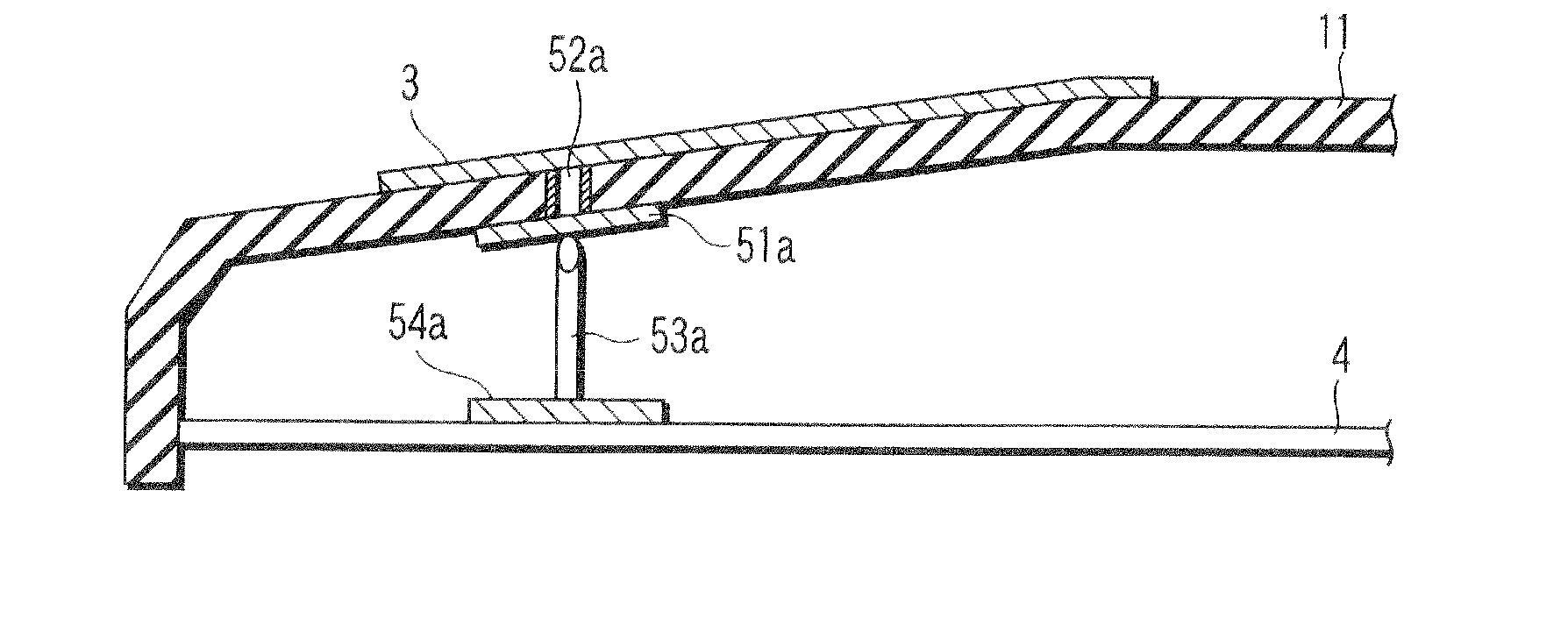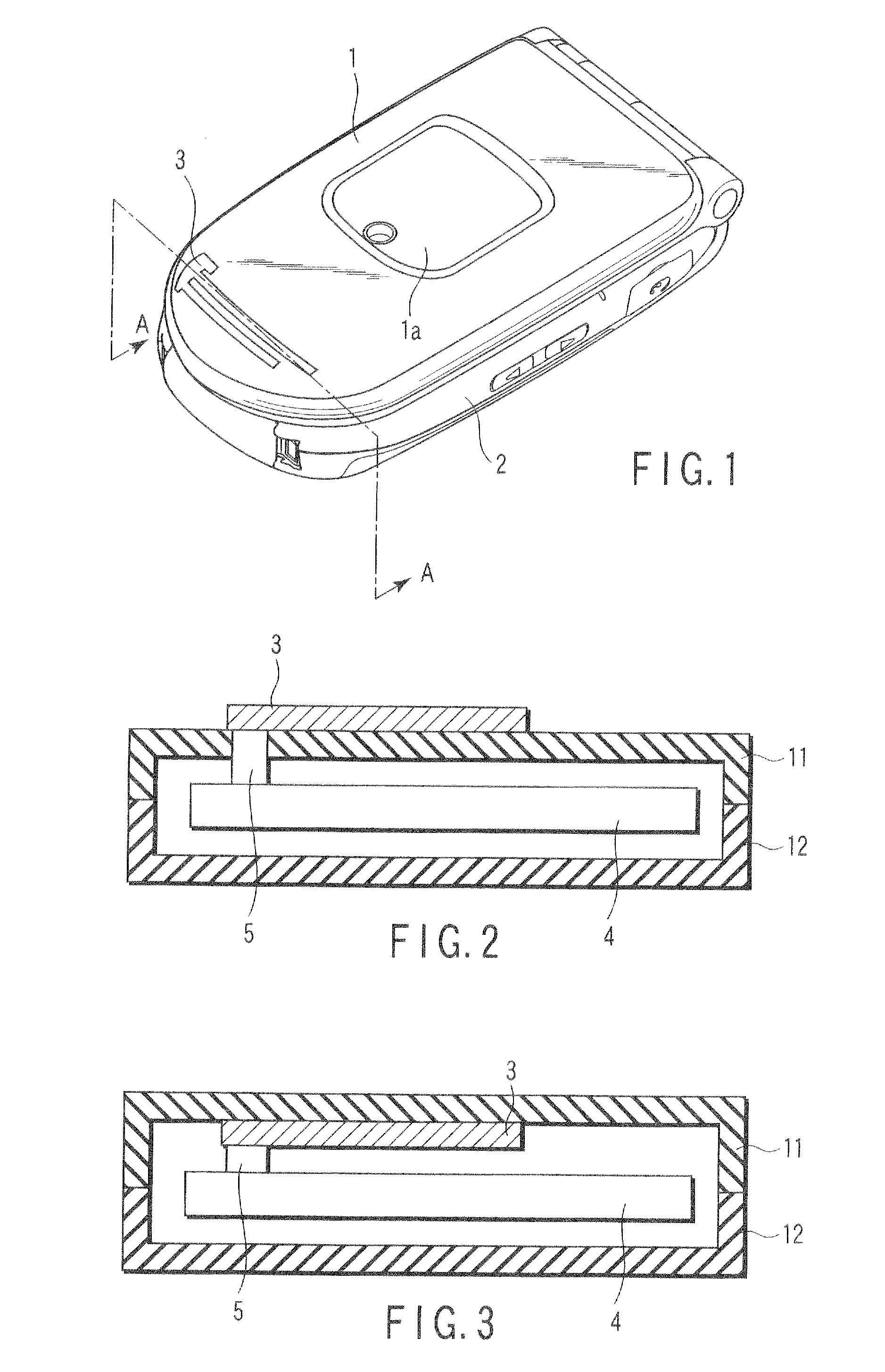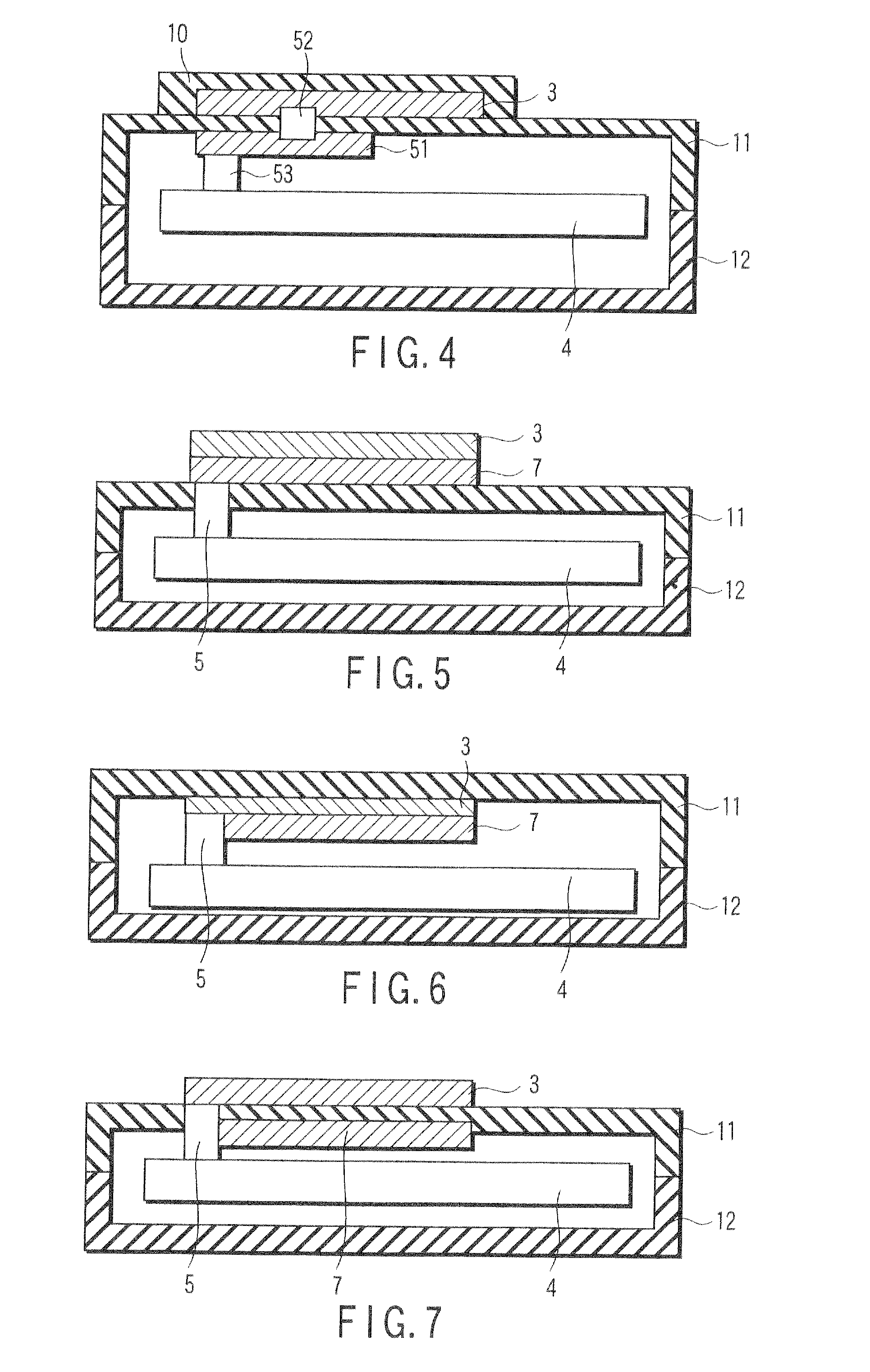Mobile communication terminal
a terminal and mobile technology, applied in the direction of portable computers, instruments, protective materials, etc., can solve the problems of high fabrication cost, large amount of time and inconvenience in assembling the terminal, and so as to achieve the effect of improving the degree of freedom in the shape of the terminal and facilitating and inexpensively integrating
- Summary
- Abstract
- Description
- Claims
- Application Information
AI Technical Summary
Benefits of technology
Problems solved by technology
Method used
Image
Examples
first embodiment
Example 1
[0054]FIG. 1 is a perspective view showing a configuration of Example 1 of a cellular phone according to a first embodiment of the present invention. FIG. 2 is a sectional view taken along the line A-A of the cellular phone shown in FIG. 1 and is a view showing Example 1 of an allocation structure of an antenna element.
[0055]The cellular phone connects an upper casing 1 made of an electrically nonconductive material with a lower casing 2 via a hinge mechanism. The upper casing 1 is composed of an outer cover 11 having a sub-display allocated thereon, and an inner cover 12 having a main display (not shown) allocated thereon.
[0056]At a distal end of a surface of the outer cover 11, an antenna element 3 made of an electrically conductive material pattern having a thickness of about 10 μm is formed by means of printing and plating. Pad printing, screen printing, offset printing or the like is used as a printing method. For example, gold, silver, or copper is used for electrical...
second embodiment
Example 1
[0081]FIG. 14 is a perspective view showing a configuration of a cellular phone which is a second embodiment of a mobile communication terminal according to the present invention. FIG. 15 is a sectional view taken along the line B-B of an upper casing in FIG. 14 and is a view showing Example 1 of an allocation structure of an antenna element. In the figures, like constituent elements shown in FIGS. 1 and 2 are designated by like reference numerals, and a detailed description will not be described here.
[0082]The cellular phone according to the present embodiment fabricates an antenna unit 8 by printing and plating an antenna element 82a on a non-metal antenna substrate 81a so as to fix the antenna unit 8 onto the upper casing 1 of the cellular phone.
[0083]The antenna substrate 81a is made of. for example, an acrylonitrile butadiene styrene (ABS) resin or a polyethylene terephthalate (PET) thin film, and has flexibility in order to take along a curved shape of a surface of th...
example 2
[0087]In Example 2 of the cellular phone according to the second embodiment of the invention, as shown in FIG. 16, an antenna unit 8 is housed in a casing 1 so as to fix an antenna substrate 81b of the antenna unit on a back face of an outer cover 11 in the upper casing 1. The antenna element 82a and a radio power supply circuit of a printed circuit board 4 are connected to each other by a connecting element 5. With such a configuration, irregularities on a surface of the outer cover 11 using an antenna unit 8 are eliminated, so that the surface of the outer cover 11 can be flatly formed, thereby making it possible to improve a design property. Although there is a need for allocating a space for housing the antenna unit 8 in the casing 1, the antenna unit 8 is made of a thin plate body, and consequently, there is no concern of an increase in the thickness of the casing 1.
PUM
 Login to View More
Login to View More Abstract
Description
Claims
Application Information
 Login to View More
Login to View More - R&D
- Intellectual Property
- Life Sciences
- Materials
- Tech Scout
- Unparalleled Data Quality
- Higher Quality Content
- 60% Fewer Hallucinations
Browse by: Latest US Patents, China's latest patents, Technical Efficacy Thesaurus, Application Domain, Technology Topic, Popular Technical Reports.
© 2025 PatSnap. All rights reserved.Legal|Privacy policy|Modern Slavery Act Transparency Statement|Sitemap|About US| Contact US: help@patsnap.com



